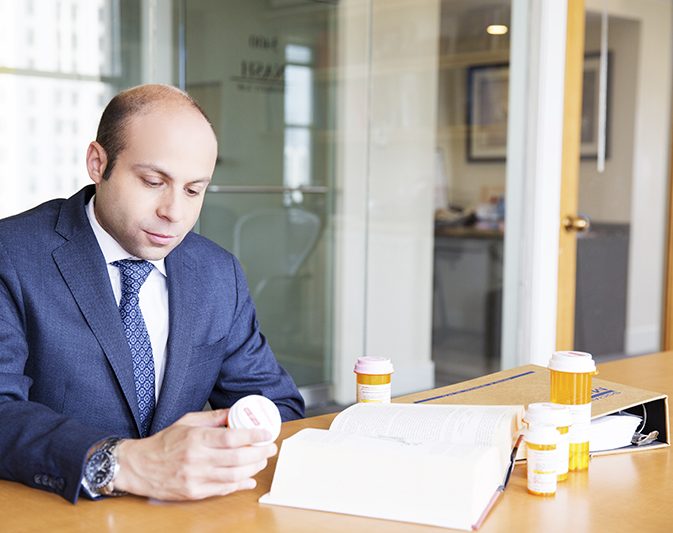Does Blindness or Low Vision Qualify for Social Security Disability in Chicago, IL?
If you or someone you care about is among the 25 million Americans who are living with blindness or significant vision loss, you know how difficult (and often impossible) it is to find and keep a job. But financial assistance may be available for you. The Social Security Administration (SSA) offers disability benefits if you can prove you are unable to work because of your vision problems. Blind individuals include those who have been blind since birth, in addition to people that have experienced severe vision loss due to conditions like retinopathy, glaucoma, stroke, and injury, among others.
SSA pays benefits to people who are legally blind under two programs: the Social Security Disability Insurance (SSDI) program and the Supplemental Security Income (SSI) program. For both programs, the SSA uses the same rules to decide whether or not you are legally blind. Here’s how SSA defines blindness (from their website ssa.gov): “We consider you to be blind if your vision can’t be corrected to better than 20/200 in your better eye or if your visual field is 20 degrees or less in your better eye for a period that lasted or is expected to last at least 12 months.” This means that if your vision in both eyes, after wearing glasses or contacts, is still worse than 20/200 you likely qualify for benefits. But if the vision in just one of your eyes is this bad and the vision in your other eye is even a little bit better, the SSA goes on to say, “You may still qualify for disability benefits if your vision problems…combined with other health problems, prevent you from working.”
To be eligible for SSDI benefits, you must have earned credits by working long enough in a job where you paid Social Security taxes. The SSA says, “If you’re blind, you can earn credits anytime during your working years. Credits for your work after you become blind can be used to qualify you for benefits if you don’t have enough credits at the time you become blind. Also, if you don’t have enough credits to get Social Security disability benefits based on your own earnings, you may be able to get benefits based on the earnings of one of your parents or your spouse.” (Work credits are subject to a complex body of SSA regulations, so our advice is to contact us at Nash Disability Law for a free evaluation to see if your vision loss and work credits qualify you for SSDI benefits.)
For SSI payments, you need not have worked, but your resources must be under $2,000 for an individual and $3,000 for a couple. Resources, for the purposes of SSI, are things you own such as: cash, bank accounts, stocks, U.S. savings bonds, vehicles, personal property, life insurance, and anything else you own that could be converted to cash and used for food or shelter.
There are a number of other special rules for people who meet certain of SSA’s strict blindness criteria. For example, there is a monthly income limit which applies to all persons who are getting Social Security disability payments, but the monthly income limit is higher for those who are blind. In 2017, the monthly earnings limit is $1,950.
As with all disability applications, solid evidence in the form of medical records and documentation is crucial to winning benefits due to blindness. The SSA requires that blind and visually impaired applicants provide specific test results which may include:
- Snellen Chart (or similar visual acuity tests). This is the familiar block letter chart which measures how well you can see objects at a distance.
- Humphrey Field Analyzer. This test provides information regarding the location of any disease process or lesion(s) throughout the visual pathway.
- Automated static threshold perimetry or kinetic perimetry exams. These tests detect dysfunction in the central and peripheral vision which may be caused by various medical conditions.
The application and appeal process for disability benefits for blindness and vision loss is complex and can be frustrating, but the experienced disability lawyers at Nash Disability Law can fight for your rights and we only get paid if you win your case. Contact us for a FREE review of your situation.


